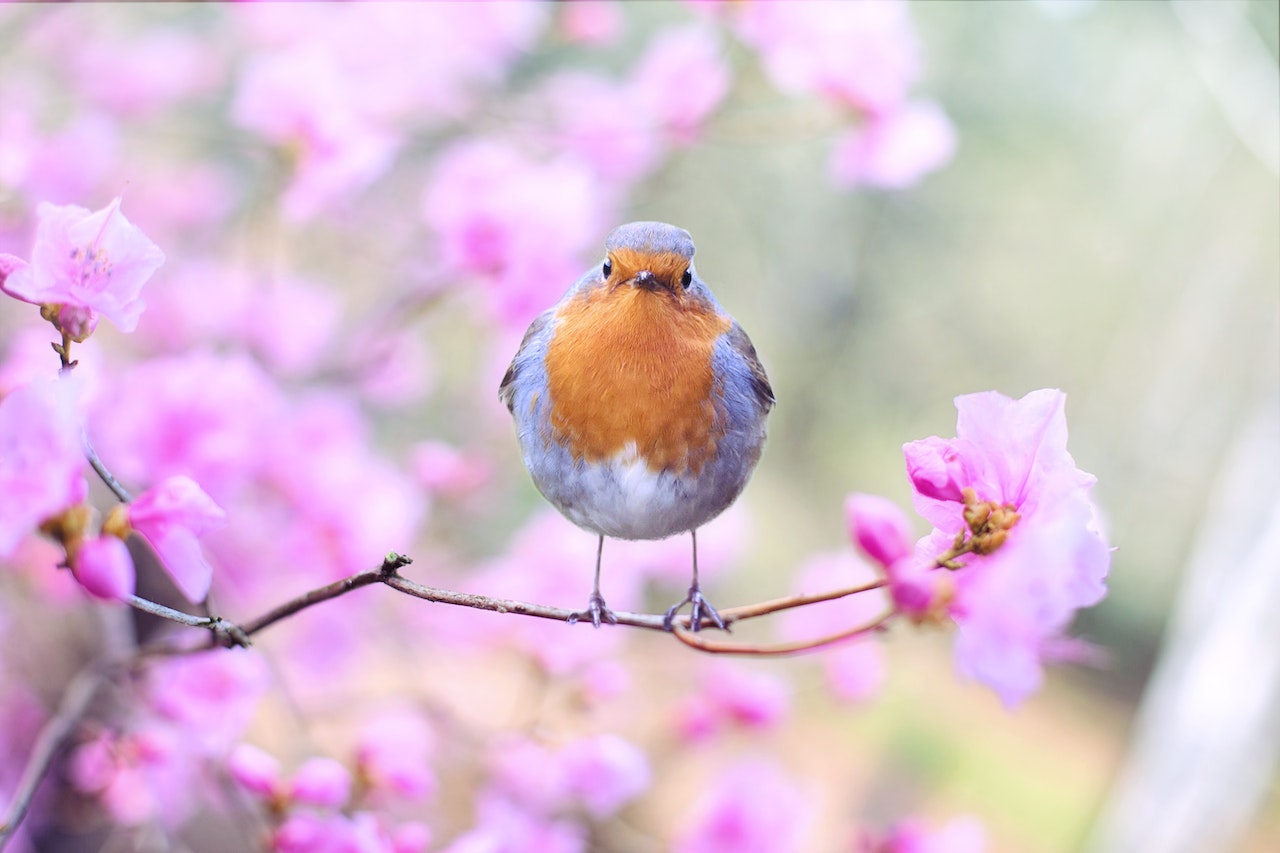Health WellNews
Healthy Choices for a Healthy Spring
After a long cold winter, Spring is a time for renewal and growth. The flowers and trees begin to bloom once again and the grayness of winter transitions to the brightness and warmth of Spring. If you have struggled to keep those New Year’s resolutions going, Spring is a great time for a fresh start with healthy choices. Here are a few tips to keep you and your family healthy and ready to enjoy the longer days of summer that are just around the corner.

Freshen Up Your Fitness Routine
If your fitness routine didn’t get off to a great start in the new year, it might be time to shake things up a bit as you head into Spring. With warmer temperatures and longer days, rethink how you approach your fitness plan and look at it as a chance to have some fun. Sign up for a 5k or join a weekend softball or basketball league. Pickleball and tennis are gaining in popularity across the country as well. And if a team sport isn’t your cup of tea, try hiking, biking or swimming.
Freshen Up Your Diet
Spring fruits and vegetables are coming back into season, so this is a great time to choose unprocessed whole foods rather than those full of sugar and preservatives. Avoid foods with corn syrup, dextrose, and fructose. If you are prone to afternoon snacking, choose raw foods like nuts, carrots, zucchini, or broccoli. Spring fruits and veggies are loaded with fiber, vitamins, and other nutrients so hit that farmer’s market and stock up on the bounty of options.
Freshen Up Your Me Time
Whether single or married, kids or not, it is important to schedule some “me” time and make it a priority, just as you would a doctor’s appointment. And it doesn’t have to be a long time and it doesn’t have to be complicated. It could be something as simple as a morning walk before work with a good cup of coffee in hand. Or it could be a hot soak in the tub with a glass of wine and a good book. Or it could be time spent in the garden after a long day of sitting at your desk. And if you try something you thought would nourish your soul and it doesn’t, don’t be afraid to try something else.
Freshen Up Your Social Life
Use these longer days to connect with people in your life. Schedule game nights, movie nights, walks, hikes, or happy hours to enjoy time with family and friends. Force yourself to do a digital detox and put down the phone, tablet, or laptop and step away from social media. Other ideas include volunteering, getting involved in a new hobby or sport are great ways to meet people and connect in new communities.
Bonus Tip
Another great tip is to make sure you are getting enough sleep every night. It is best for adults to get at least seven hours of sleep per night. Establishing all these healthy habits in Spring can set you up for a great summer and beyond.
Tips and Tricks for a Sparkling Spring
For some, Spring cleaning is a productive and anticipated right of passage each year. It’s a time to stock up on essential cleaning and organizational supplies and deep clean the house. For others, it’s a dreaded time to confront the messiness and chaos that can come with a long cold winter. Here are a few tips and tricks to get your Spring cleaning under control and make it less overwhelming.

Make it Manageable
The first tip is to break down your Spring-cleaning chores into more manageable chunks. Set the timer on your phone for 15 minutes and then tackle some simple tasks like dusting open surfaces and ceiling fans, door frames and switch plates, or baseboards. This can help you feel like you are accomplishing something without spending a ton of time. Using microfiber cloths and mops can help you pick up dust in a flash.
Make Your Own Cleaning Solution
If the chemicals in store bought cleaners concern you, make your own natural cleaning solution with ingredients you probably already have on hand. Combine the following ingredients in a spray bottle and shake it well:
- ¾ cup of water
- ¾ cup of rubbing alcohol
- 5 to 10 drops of peppermint, lemon, or orange essential oils
- 1 squirt of natural dish soap
Once your mixture is complete, spray on to surfaces and wipe with a clean cloth.
Keep Your Shower Clean
One easy way to keep your shower clean is to keep supplies in there so you can clean while you are in the shower. Keep a squeegee in the shower so you can wipe down the walls. Keep a spray bottle or dish wand with equal parts dish soap and vinegar in the shower to scrub things down and keep the potential mess under control.
Remove Stains
If your favorite coffee or tea mug is embarrassingly stained, use a little baking soda to make them like new. Fill the mugs with one part baking soda and two parts water. Then let it sit overnight and in the morning clean it out with a sponge.
Use the Right Tools
There are lots of tools to help you clean the toilet quickly and without getting too close to the mess. There are also some great tools to help you clean your blinds and windows. When the days get longer and sunnier, you want to open the blinds and windows, right? And that’s when you notice the dust on the blinds and smudges on the windows. Use tools that help you dust multiple blinds at once. And there are tools to help you tackle those hard-to-reach corners and tall windows.
Tips and tools abound to help you get your living space sparkling clean for Spring and beyond so take advantage of what’s out there and tackle what you can in small bites and before you know it, your house will be a place of refuge and comfort.
Fitness Routine Spring Cleaning
With warmer temperatures and longer days, it’s time to evaluate your fitness routine and give it a Spring overhaul. While we might find comfort in being creatures of habit, it’s important to frequently switch up your fitness routine for a few different reasons. One reason is to avoid hitting a fitness plateau. But how do you know when it’s time for a change? If any of the following apply to you, it might be time to freshen things up.

If your routine brings with it a sense of dread, it might be time to try something new. If you stop seeing results and you aren’t making any forward progress, then it’s time to make a change. If you feel unusually tired rather than energized after your routine and you watch the clock to count down the minutes, then you definitely need to switch things up.
Evaluation is Key
Before you just change everything up, make sure to take some time and evaluate your routine and how it relates to your fitness goals. Does your current routine challenge you? Do you look forward to your workouts or dread them? With Spring here, there are lots of options to explore to help you switch up your routine.
The first thing you can take advantage of with longer days and warmer temperatures is to take your workout outside. Sometimes a simple change in scenery is all it takes to snap out of a dull routine. Some cities offer classes in the park like yoga or aerobics or even an early morning fitness boot camp.
You also might consider registering for a running club or just register for a 5k or hiking challenge. And with longer days, you can get up earlier to work out before your day fully begins. And add a little variety to your routine by including some free weights, resistance bands, or Kettlebells. Sometimes, a new pair of shoes or yoga pants can provide just the right amount of motivation.
And if none of that works to infuse a little energy into your fitness routine, try a new class or take a lesson. Group fitness classes can provide you with a connection to a new community and new forms of movement. Take a golf or tennis lesson with family and friends. This can also be a way to get your friend group or family out for some fresh air and activity.
Whatever you decide to do, make sure that you enjoy it. If you dread your workout, then you aren’t going to reach your goals or enjoy the journey. If something isn’t working, don’t be afraid to try something new. Everyone’s routine and goals are different and as individualized as you are. Find the formula that works for you and don’t be afraid to make adjustments along the way.





